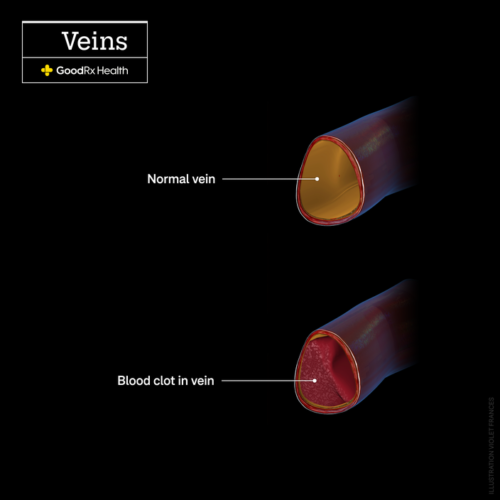August 15, 2024 by Sonya Goins, Mayo Clinic News Network Credit: Unsplash/CC0 Public Domain Many people have lost unwanted pounds by using popular injectable weight-loss medications such as Ozempic, Wegovy and Zepbound. These drugs contain semaglutide, liraglutide or tirzepatide, which curb appetite and increase insulin sensitivity. Some studies show that you can lose up to...
Category: <span>Patient Education</span>
Q&A: Differences of sex development 101—it’s complicated
August 15, 2024 by Rob Clancy, Hudson Institute of Medical Research Professor Vincent Harley. Credit: Hudson Institute of Medical ResearchBoy or girl? It’s not always as simple as that. Internationally renowned researcher into differences of sex development (DSDs), Professor Vincent Harley, introduces the topic and answers your questions—separating fact from fiction. Recent controversies in the...
7 Medications That Can Make You Tired — And Why Your Antibiotic Isn’t One of Them
Written by Stacia Woodcock, PharmD | Reviewed by Christina Aungst, PharmDUpdated on April 22, 2024 Key takeaways: If you’re feeling tired, it’s possible your medication is to blame. Common culprits include antihistamines, muscle relaxers, and benzodiazepines. Opioid pain medications commonly cause drowsiness, too.Acetaminophen (Tylenol) and antibiotics aren’t known to make you drowsy. But they both...
What Does a Blood Clot Feel Like?
Written by Angela Haupt | Reviewed by Patricia Pinto-Garcia, MD, MPHPublished on October 13, 2023 Key takeaways: Blood clots can happen anywhere in the body but are common in the legs. Clots can also break off and travel to the lungs.Risk factors for blood clots include surgery, sitting for a long time, and taking hormonal...
8 Foods That Are Bad for Your Liver — And Options That Can Reverse the Damage
Written by Anne Jacobson, MD, MPH | Reviewed by Katie E. Golden, MD Key takeaways: Nonalcoholic fatty liver disease (NAFLD) happens when too much fat builds up in the liver and damages it. Eating certain kinds of food can increase the risk of developing NAFLD.Foods that are high in sugar, fat, and salt put extra...
Q&A: Staying safe as we age—understanding falls in older adults
August 13, 2024 by Daryl Lovell, Syracuse University Credit: Pixabay/CC0 Public DomainFalls are a major concern for older adults and for those that love and care for them. They are a leading cause of injury for adults older than 65, according to the U.S. Centers for Disease Control and Prevention. More than a third of...
Newly identified dementia risk factors are preventable—addressing them could reduce dementia rates by 45%
August 13, 2024 by Eric B. Larson and Laura Gitlin, The Conversation Credit: Pixabay/CC0 Public DomainNearly half of all dementia cases could be delayed or prevented altogether by addressing 14 possible risk factors, including vision loss and high cholesterol. That is the key finding of a new study that we and our colleagues published in...
First genome-wide comparison of vapers and smokers finds similar DNA changes linked to disease risk
August 13, 2024 by Zara Abrams, Keck School of Medicine of USC vapeCredit: CC0 Public Domain In the most comprehensive study of its kind, researchers from the Keck School of Medicine of USC compared epigenetic changes across the genome in young adults who vaped, smoked or did not use nicotine products, finding a tumor-suppressor gene...
Lack of purpose and personal growth in older age may precede mild cognitive impairment
August 13, 2024 by British Medical Journal seniorCredit: Unsplash/CC0 Public Domain Feeling that your life lacks purpose and that there are few opportunities for personal growth in older age may precede the development of mild cognitive impairment (MCI), a frequent precursor of dementia, suggests research published online in the Journal of Neurology, Neurosurgery & Psychiatry....
Can magnesium supplements improve health?
August 14, 2024 by Edward Saltzman, Tufts University Credit: Vanessa Loring from PexelsMagnesium is a mineral that occurs naturally in many foods, such as nuts and seeds, beans and other legumes, whole grains, and leafy greens. We need adequate amounts of magnesium for healthy muscle, nerve, and cardiovascular system function. Most people get enough of...










